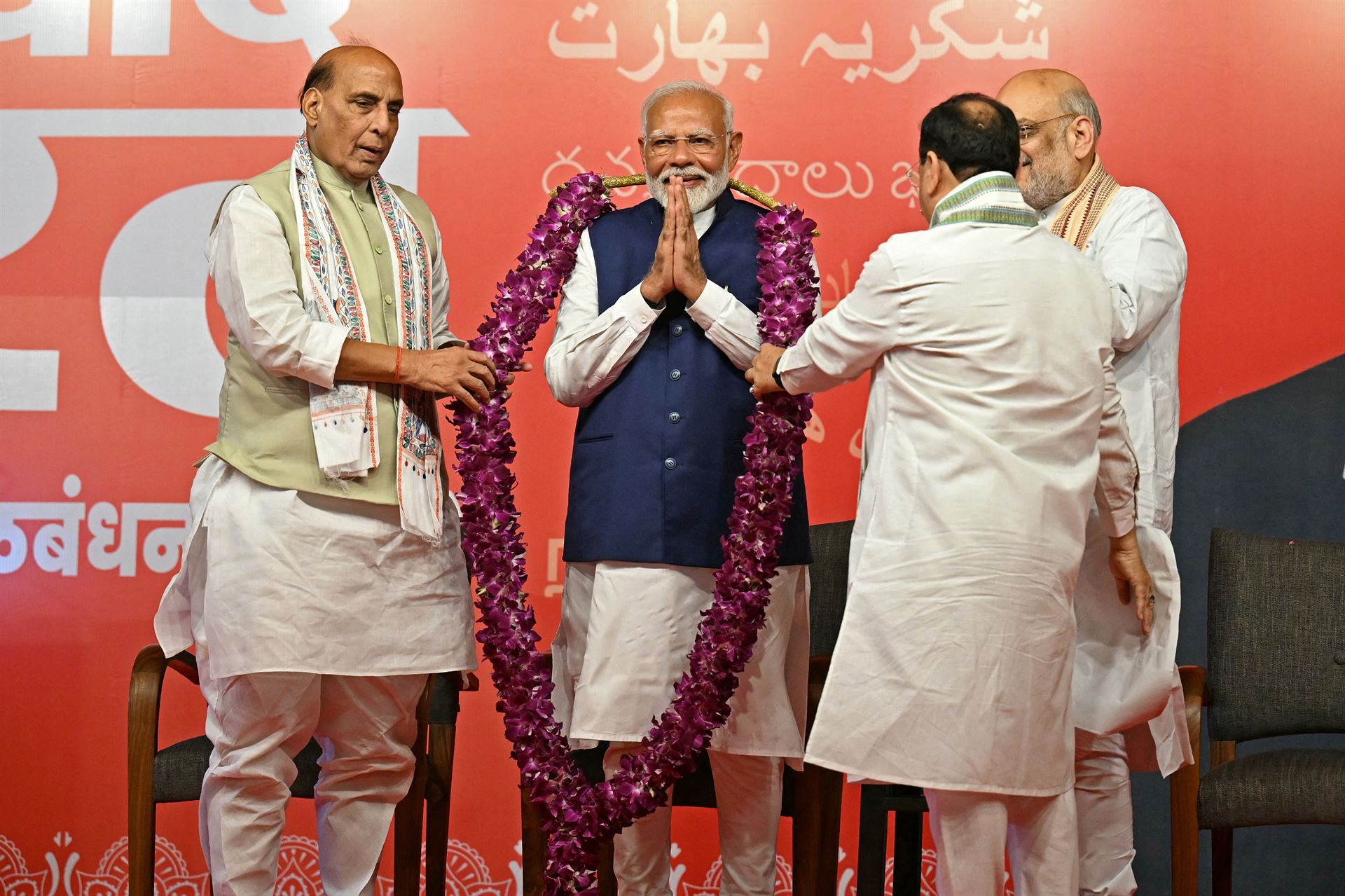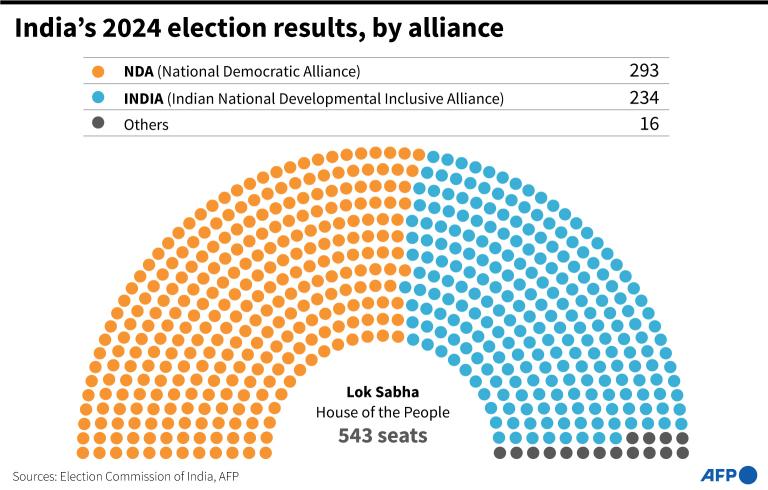
NEW DELHI - India's Narendra Modi was formally elected on Friday by lawmakers of his National Democratic Alliance to be prime minister for a historic third consecutive term, as the world's most populous nation returns to government by coalition.
ALSO READ: Modi forced to woo smaller parties to form government
Modi will next meet President Droupadi Murmu later in the day and present his claim to form a new government, with a spokesperson for one of his allies saying his swearing-in was set for Sunday evening.
The party, which had a handsome majority in the previous two terms, secured only 240 seats in the lower house of parliament, far short of the 272 needed to govern on its own
It is the first time in a decade that Modi's Bharatiya Janata Party has needed the support of regional parties to form the government.
READ MORE: India vote count shows Modi alliance winning narrow majority
The party, which had a handsome majority in the previous two terms, secured only 240 seats in the lower house of parliament, far short of the 272 needed to govern on its own.
The NDA won 293 seats in the 543-member Lok Sabha, and the INDIA alliance, led by Rahul Gandhi's centrist Congress party won more than 230 to exceed forecasts.
Lawmakers from the BJP and its allies, including the Telugu Desam Party, and the Janata Dal (United) voted unanimously for Modi to become the leader at the alliance's first meeting after the June 4 vote count and declaration of results.

Modi's name was proposed by outgoing Defense Minister Rajnath Singh and seconded and backed by other outgoing ministers and leaders of parties in the alliance.
Newly elected lawmakers and senior alliance leaders thumped tables and applauded to back his candidacy, with some standing and chanting "Modi, Modi!" in the central hall of the old parliament building.
READ MORE: At least 15 dead in eastern India over 24 hours as temperatures soar
The swearing-in ceremony for the prime minister is scheduled for Sunday evening, a TDP spokesperson told Reuters.
Indian media said both BJP allies are eyeing the post of the speaker in the lower house, while the party itself is expected to retain four key ministries - foreign affairs, defense, home, and finance.
The coalition negotiations are a throwback to an era before 2014, when Modi swept to power with an outright majority for his BJP, as alliance partners haggled for positions and benefits.


